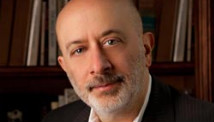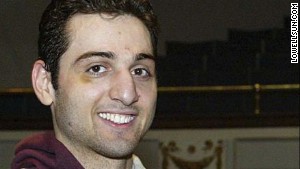Editor's note: Ken Ballen, a former federal prosecutor, is president and founder of Terror Free Tomorrow, a nonprofit organization that investigates the causes of extremism. He is the author of "Terrorists in Love: True Life Stories of Islamic Radicals."
(CNN) -- There are many unanswered questions about the motivations of the alleged Boston Marathon bombers, Tamerlan Tsarnaev and Dzhokhar Tsarnaev. But it is becoming increasingly clear that they were inspired by faith in a radical Islamist ideology. Dzhokhar has told investigators that, among other things, he and his brother wanted to defend Islam, while Tamerlan's social media accounts are replete with clips by extremist clerics.
As the investigation continues to unravel the seeming paradox of how two apparently normal young men could commit acts of violence, classmates, neighbors and relatives of those who knew them have expressed surprise and disbelief.
I have interviewed over the past seven years more than a hundred radical extremists, including numerous al Qaeda and Taliban members, and it appears the Tsarnaev brothers fit the profile of many young men who turn to radicalism.
 Ken Ballen
Ken Ballen Young men—and they are almost always between the ages of 16 and 30—who convert to the radical Islamist cause come from a variety of socioeconomic and family circumstances. Before their conversion (and even often after), to all outward appearances they resemble their peers and seem like any other young men. What changes them?
While their friends, the Internet, or clerics may provide the spark or ostensible reason for radicalization, almost all these young men have some kind of deep and often hidden personal crisis in their lives that propels them to seek the all-encompassing, comprehensive answers that the radical Islamist ideology offers.
Become a fan of CNNOpinion Stay up to date on the latest opinion, analysis and conversations through social media. Join us at Facebook/CNNOpinion and follow us @CNNOpinion on Twitter. We welcome your ideas and comments.This belief system can elevate lost individuals into a greater collective, convincing them that they are carrying out the will of God for their own glory and the redemption of Muslims everywhere.
Imbued with that conviction, the young men believe they are serving the cause of God, performing good deeds in the world, and that their own lives suddenly have meaning. They consider themselves at last on the correct path in life.
Repeatedly in my interviews, the surface reasons these men joined the cause, such as perceived American hostility to Islam or the American involvement in Iraq or Afghanistan, often masked a personal sense of alienation and individual crisis that gripped their lives, from a failed love affair or family conflict to not being able to relate to their peers.
 Bomb suspect says brother was mastermind
Bomb suspect says brother was mastermind  Suspects' mom: Their protector is God
Suspects' mom: Their protector is God The radical Islam cause provides the relief from their crisis. It serves as the easy outlet to unleash their demons. They can now achieve a greater glory. Their lives now matter. They can become overnight heroes, featured in the media, endowed with fame and celebrated among their small, closed circle—either online or among fellow believers.
Whether the Tsarnaev brothers were self-radicalized through the Internet or by other individuals in the United States or overseas, they tapped into a belief system that feeds on vulnerable young men. It is this radical interpretation of Islam and its ideology—which demonizes nonbelievers and creates an exclusivist community—that poses an all too real danger and cannot be defeated by force of arms alone.
I met many young men who ended up leaving the radical movement. The reason each of them left centered on their own realization that al Qaeda and others were engaged in corruption or deception and did not represent true Islam.
As we search for the most effective responses to Islamist radicalism, we would do well to remember that the answers ultimately must come from those who follow the faith.
The United States can play a constructive role. The radical Islamist cleric Anwar al-Awlaki, whose sermons can be found on the Internet, is still influential. U.S. authorities killed al-Awlaki with a drone strike in Yemen in 2011. If the United States put in effort to expose the fact that the cleric had been arrested for soliciting prostitutes -- a violation of Islamic precepts -- his standing among young men looking for an example of Islam could be diminished.
Ideas drive the radical Islamist movement. Ideas can defeat it.
Follow us on Twitter @CNNOpinion.
Join us on Facebook/CNNOpinion.
{ 0 comments... read them below or add one }
Post a Comment